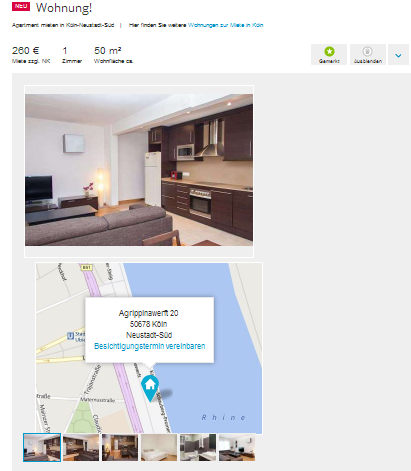With the exception of UBS, banks’ 2013 bonus pots are likely to be down. At Goldman Sachs, pay per head fell 4% versus 2012. At JPMorgan’s corporate and investment bank, it fell 5%. At U.S. banks, bonuses are being distributed now and at European banks they will be distributed soon. Some people will be paid nothing at all. Others will receive a token amount suitable only for investing in commiseration at the local hostelry.
So, what do you do if your bonus is paltry? Academics around the world have spent years researching the science and psychology of negotiation. This is what you need to know.
1. Focus on the gains to be earned by paying you a higher bonus
A famous study on negotiator behaviour from the 1980s found that negotiators are more likely to reach an agreement if the negotiation is posited in terms of a gain rather than a loss. This is because people tend to be risk averse with regards to a gain and risk-embracing with regards to a loss. If you threaten to leave, your boss may therefore think ‘Why not?’
What this means for bonus negotiations: The person who attempts to elicit a larger bonus by pointing out how much the bank will lose if he/she quits, will lose. By contrast, the banker who points out how much the bank stands to gain from their continued loyalty and hard work (following a larger bonus), will benefit.
2. Mention a figure early in the negotiations
The science of negotiation focuses on ‘anchoring’. The first figure mentioned by either buyer or seller becomes ‘anchored’ in the minds of the parties involved. The anchor influences a negotiators’ initial offer, bottom line, and belief in the other party’s bottom line.
Research has indicated that the party who posits the first anchor outperforms the opponent. However, there’s also research to suggest that if you wait to make your first offer, the outcome reached will be more favourable in the long term. Additional research suggests that it helps to come in with a very precise and plausible anchor if you want to have the best effect.
What this means for bonus negotiations: Hold back initially. Come in quite soon thereafter with a well researched, highly plausible and very specific figure for the amount people are being paid in comparable roles at rival banks.
3. Collaborate
Studies show that negotiators reach poor outcomes when parties involved believe their interests to be diametrically opposed. By comparison, outcomes tend to be preferable when negotiations are framed as ‘win-win.’ Be aware that humans tend towards egocentrism and that this is damaging to the outcome of negotiations – think hard about what your boss is trying to gain – what does he/she want from the negotiation?
What this means for bonus negotiations: Don’t demand that your bonus must be raised to the possible detriment of your boss and other members of the team. Empathize with your boss’s dilemma in allocating a smaller bonus pool. Point out that your loyalty and enthusiasm (following higher pay) will generate increased profits and rewards for the team.
4. Play on your boss’s need to feel honourable, trustworthy and honest
Academics have found that people like to feel honourable It’s important that they can perceive themselves as fair, trustworthy and honest.
What this means for bonus negotiations: Present a strong and rational case for why you should have been paid more. Stress the unfairness of your current payment. Emphasize that your boss intimated that you’d be paid well earlier in the year and has gone back on his word.
5. Be a little emotionally erratic
It can sometimes help to get angry in negotiations. However, any anger you show needs to be directed towards your boss’s behaviour and his decision making process, not towards your boss as a person. Personalizing anger will merely lead to greater entrenchment in unfavourable negotiating positions.
An INSEAD study in 2013 found that emotional inconsistency can be helpful to the outcome of negotiations. Inconsistency in the form of alternately angry and happy messages from a party in a negotiation can lead the other to feel out of control and make them more likely to concede.
What this means for bonus negotiations: Express anger about the decision making process that led to the diminutive bonus. Send a pleasant message telling your boss how much you like him, and then send an angry message saying how furious you are about your level of pay.
6. Make your boss feel like you’ve made some important concessions in the negotiation process
If you want to keep your job and to be well-rewarded in future, it’s important that you make your boss feel positive about the negotiation – and by implication, about yourself.
Studies show that when negotiators attribute the success of the negotiation to themselves, they feel pride (a negative emotion). When they attribute success to the other party, they feel gratitude towards that person. This is carried over into future negotiations. You want your boss to feel gratitude towards you.
What this means for bonus negotiations: Be prepared to compromise at the last minute.
7. Avoid entering the negotiation in an aggressive frame of mind, making unreasonable demands
Various studies have highlighted a phenomenon known as the ‘one down trap.’ Here, parties in an inferior position of power have been shown to adopt an overly aggressive negotiating stance which makes it impossible to reach an agreement.
What this means for bonus negotiations: Your boss is more powerful than you. Get over it.
8. Make sure that you smell nice
Researchers at Berkeley found that negotiations proceed more smoothly and result in more pleasing outcomes when the parties involved are feeling happy. The researchers engendered happiness by showing negotiators a funny video or cartoon, giving them a small present, or wearing perfume.
What this means for your bonus negotiations: Try to put your boss in a good frame of mind before your start the process. Perfume may be one method of achieving this.
9. Negotiate face to face
The jury is still out on the value of conducting negotiations by email. Some studies have shown that email-based negotiations are more likely to lead to self-interested behaviour and entrenched rigid positions.
What this means for your bonus negotiations: Look your boss in the eye.
10. Avoid the female negotiator trap
Finally, negotiating as a woman is fraught with dangers. Studies have shown that women who assertively negotiate higher pay are punished for being too pushy. On the other hand, women who don’t negotiate assertively enough are punished for a lack of leadership. Male negotiators don’t suffer in the same way.
Researchers at Harvard University found that women can help mitigate the negotiation penalty by emphasizing the legitimacy of their compensation request in relation to the compensation of colleagues.
What this means for your bonus negotiations: Emphasize known compensation for your role and (if possible) known compensation for other members of your team. Stress the unfairness of being paid less (see point 4).
Related stories:
Citigroup accused of practicing mind control on juniors.















